03. June, 2025delish0
The high-precision slitting and efficiency improvement of hot stamping foil slitting machine involves the comprehensive application of mechanical design, control system, material characteristics and process optimization. The following is a systematic analysis of the core technology:
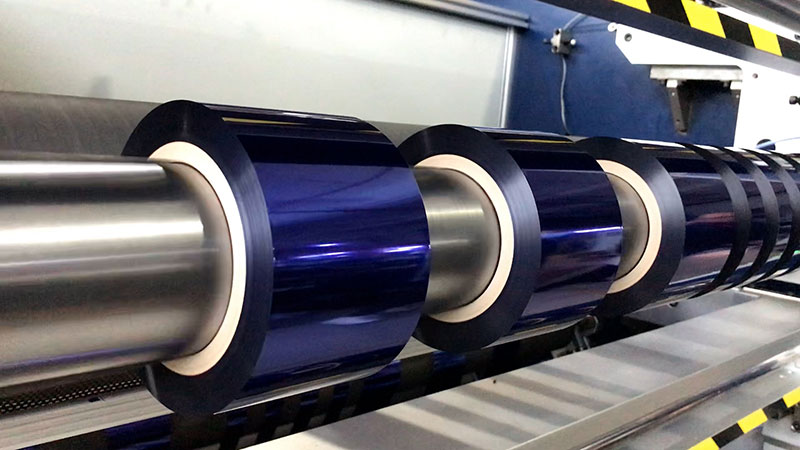
First, the core technology of high-precision slitting
1. Tension control system
• Closed-loop tension control: real-time feedback from magnetic particle brake/servo motor + tension sensor is used to ensure that the tension of the coil is constant (fluctuation range±0.1N) during the slitting process, and the material is avoided from stretching or wrinkling.
• Segmented tension adjustment: Automatically adjust the tension gradient (such as taper tension control) in the unwinding, traction and winding areas according to the change of the winding diameter to prevent material deformation.
• Active deviation correction system: detect the edge position of the foil through the photoelectric sensor, and drive the linear motor or pneumatic device to make lateral fine-tuning (accuracy ± 0.05mm) to ensure the straightness of slitting.
2. Cutting system optimization
• Tool selection:
◦ Round knife slitting: carbide coated blade (hardness≥ HRA90), cutting edge grinding angle 18°-22°, life up to 5 million times of cutting.
◦ Laser slitting: fiber laser (wavelength 1064nm, power 500W-2kW), suitable for ultra-thin foil (5-50μm), no burr in the incision, and the speed can reach 20m/min.
• Dynamic tool pitch adjustment: servo motor drives the tool holder, with encoder feedback, to achieve online adjustment of slitting width (minimum slitting width 1mm, tolerance ± 0.02mm).
3. Motion control technology
• Multi-axis synchronous control: using EtherCAT bus communication, the main controller (such as Beckhoff CX series) coordinates the synchronization error of unwinding, traction and rewinding shafts; 0.005mm。
• Speed matching algorithm: PID+ feedforward compensation eliminates the material lag in the acceleration/deceleration phase to ensure stable tension during speed switching.
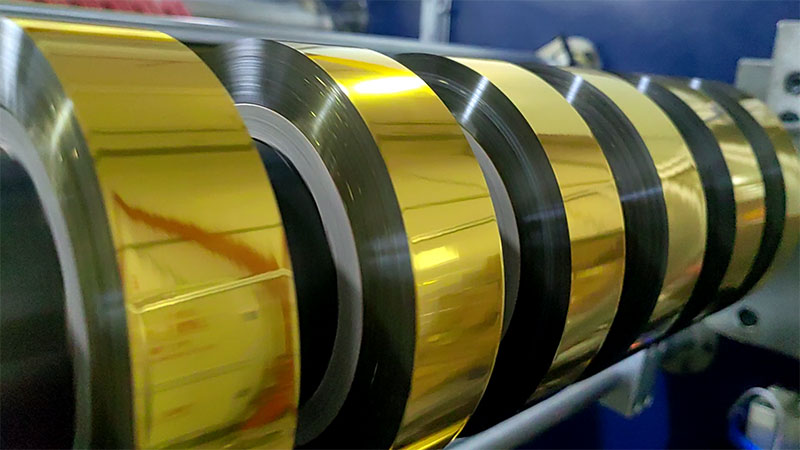
Second, the critical path of efficiency improvement
1. High-speed slitting design
• Mechanical Structure Strengthening:
◦ Cast iron body (damping coefficient ≥ 0.03) suppresses vibration, and supports the dynamic balance class of the roller G1.0.
◦ The clamping force of the inflatable shaft ≥ 0.6MPa, and the fast roll change can be achieved in 3 seconds.
• Drive system: Direct drive servo motor (rated torque 20Nm, speed 3000rpm) replaces the gearbox, and the transmission efficiency is increased to 95%.
2. Intelligent functions
• Visual inspection system: linear CCD (resolution 5μm) detects slitting defects (such as burrs, sawteeth) online, automatically marks and triggers the sorting mechanism.
• Predictive maintenance: vibration sensor + AI algorithm analyzes the bearing wear trend and warns of faults in advance (accuracy rate > 92%).
3. Optimization of process parameters
• Database support: preset cutting parameters (e.g. knife pressure 50-200N, temperature 20-40°C) for different foils (PET/OPP/metal foils).
• Adaptive Adjustment: Dynamically adjusts the knife gap based on the real-time detected foil thickness (laser thickness gauge accuracy ± 0.5μm).
Third, cutting-edge technology direction
• Ultra-precision cutting: femtosecond laser processing (pulse width < 500fs) to achieve nanoscale incision quality, heat-affected zone < 5μm。
• Digital twin: shorten the equipment development cycle by 30% through virtual commissioning, and optimize slitting parameters through real-time simulation.
• Modular design: The quick-change turret unit supports switching between different slitting modes (e.g. single-tool/multi-tool/helical cutting) within 5 minutes.
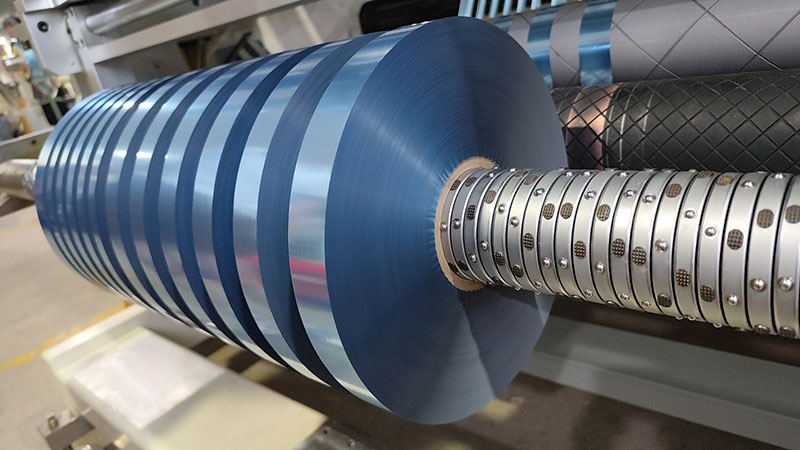
Fourth, comparison of typical performance indicators
| Technical parameters | Legacy equipment | High-end equipment |
| Slitting accuracy | ±0.1mm | ±0.02mm |
| Maximum speed | 50m/min | 150m/min |
| Roll change time | 5 minutes | ≤ 30 seconds |
| Scrap | 3% | <0.5% |
Implementation recommendations
• Material suitability test: Tension-velocity curve calibration for different foils.
• Periodic calibration: Weekly calibration of the tension transducer and optical alignment system.
• Energy consumption optimization: The regenerative braking system is used to recover deceleration energy and reduce power consumption by 15%.
Through the integration of the above technologies, the modern hot stamping foil slitting machine can achieve a synergistic breakthrough of μm-level accuracy and 100-meter-per-minute speed, and meet the processing needs of micron-level hot stamping foil in packaging, electronics and other industries.



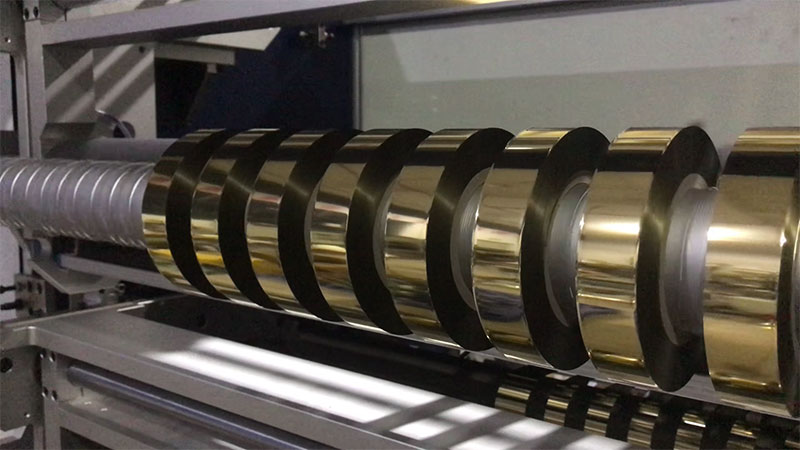
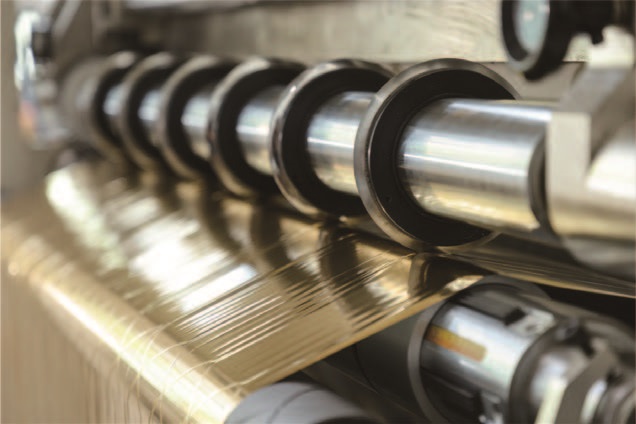
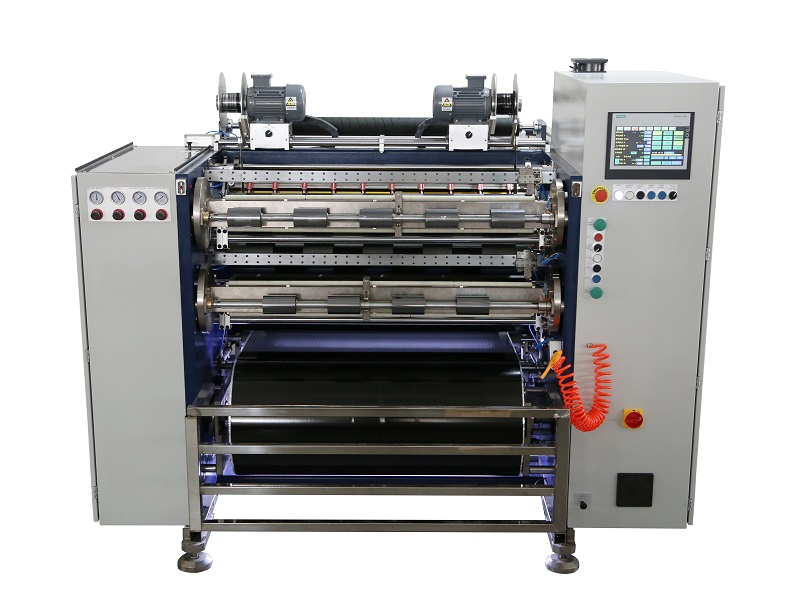 Fully Automatic TTR Slitter RSDS8 Plus
Fully Automatic TTR Slitter RSDS8 Plus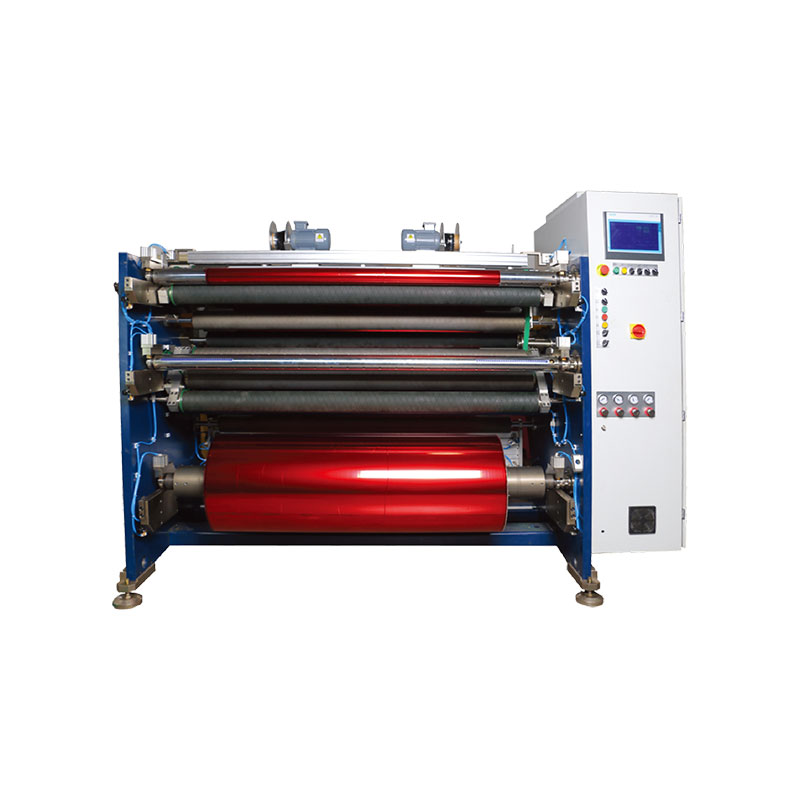 Hot Stamping Foil Slitter 1600mm
Hot Stamping Foil Slitter 1600mm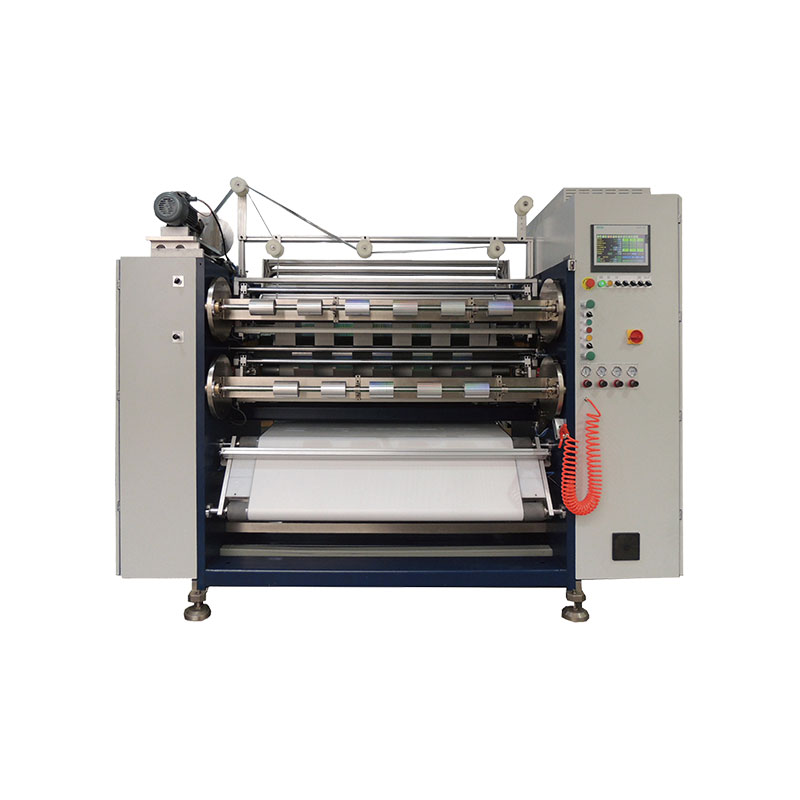 Hot Stamping Foil Slitter (4 Shafts)
Hot Stamping Foil Slitter (4 Shafts)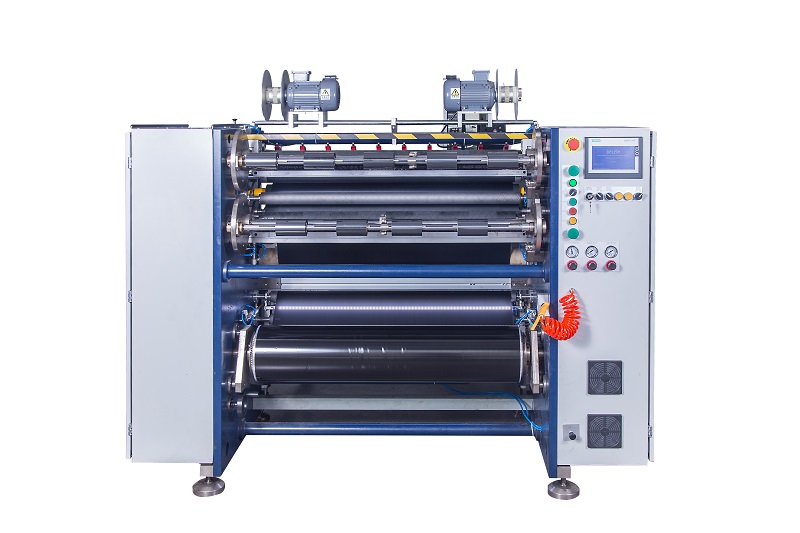 Semi-Auto TTR Slitter RSDS2 Plus
Semi-Auto TTR Slitter RSDS2 Plus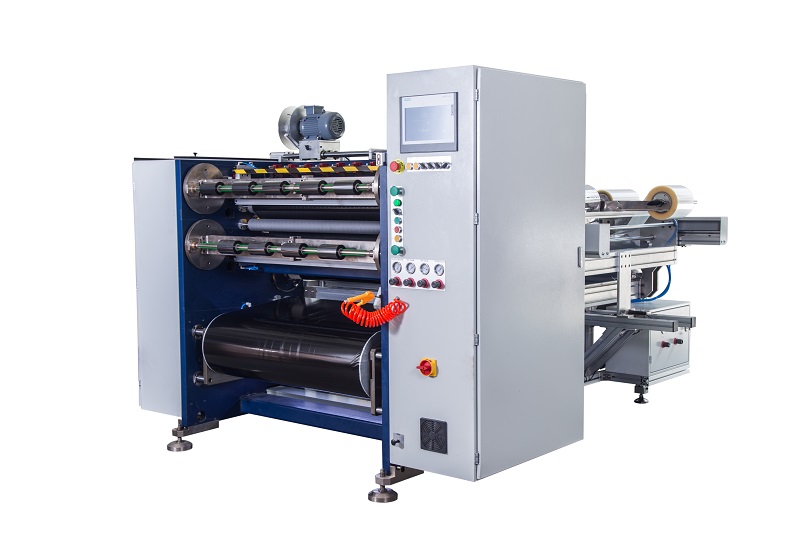 Semi Automatic TTR Slitter RSDS5 Plus
Semi Automatic TTR Slitter RSDS5 Plus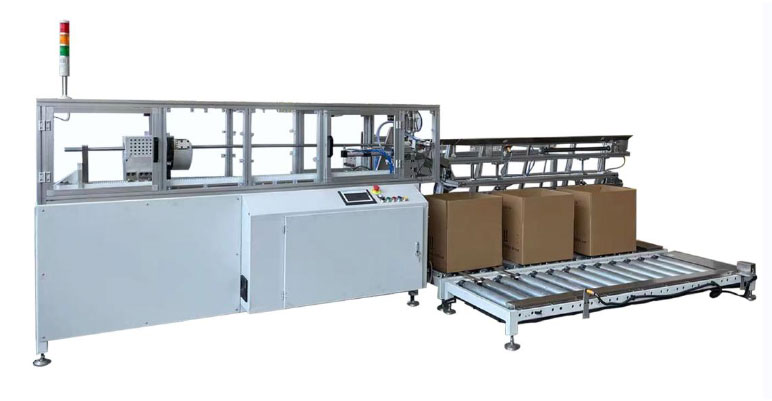 Auto Paper Core Cutter
Auto Paper Core Cutter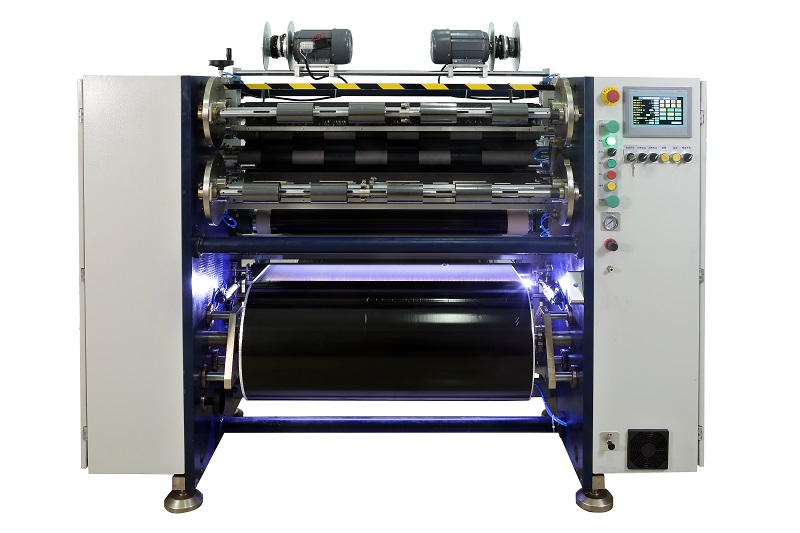 Manual TTR Slitter RSDS2
Manual TTR Slitter RSDS2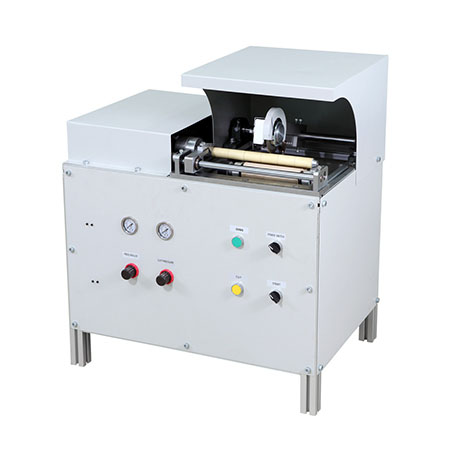 Manual Paper Core Cutter
Manual Paper Core Cutter





